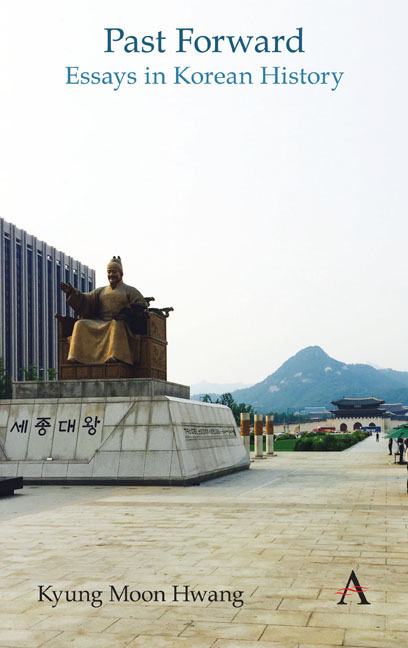Book contents
- Frontmatter
- Contents
- List of Figures
- Foreword
- Chronologies of Korean History
- Themes
- Acknowledgments
- Note on Romanization and Spelling
- Part I Circulating History
- Part II Durable Traditions
- Part III Ancient Remains
- Part IV Dynastic Depths
- Part V Modern Origins
- Part VI Challenges of Nationhood
- Part VII History Makers
- Part VIII External Presences
- 52 Korea's Complicated Relationship with China
- 53 How Chinese was Chinese History?
- 54 Tiananmen and the Power of History
- 55 Lotte between Korea and Japan
- 56 Comfort Women Beholden to History
- 57 A Modest Proposal for Dokdo
- 58 The General Sherman Incident of 1866
- 59 Depictions of the United States
- 60 Overcoming Old Views of Korea–United States Ties
- 61 Foreign Language Dependency
- Part IX Trials of Modernization
- Part X Gripped by the Past
- Index
53 - How Chinese was Chinese History?
from Part VIII - External Presences
- Frontmatter
- Contents
- List of Figures
- Foreword
- Chronologies of Korean History
- Themes
- Acknowledgments
- Note on Romanization and Spelling
- Part I Circulating History
- Part II Durable Traditions
- Part III Ancient Remains
- Part IV Dynastic Depths
- Part V Modern Origins
- Part VI Challenges of Nationhood
- Part VII History Makers
- Part VIII External Presences
- 52 Korea's Complicated Relationship with China
- 53 How Chinese was Chinese History?
- 54 Tiananmen and the Power of History
- 55 Lotte between Korea and Japan
- 56 Comfort Women Beholden to History
- 57 A Modest Proposal for Dokdo
- 58 The General Sherman Incident of 1866
- 59 Depictions of the United States
- 60 Overcoming Old Views of Korea–United States Ties
- 61 Foreign Language Dependency
- Part IX Trials of Modernization
- Part X Gripped by the Past
- Index
Summary
In the summer of 2017, Koreans became upset because it appeared that China's President Xi Jinping might have told his American counterpart that their country “was once part of China.” But regardless of whether Xi actually said such an absurd thing, it's become apparent that the Chinese government, controlled by the Chinese Communist Party, has cultivated such a view to solve a fundamental problem with Chinese history itself. And the implications clearly extend to Korean history.
The common belief among Chinese, and many others, is that China boasts a long unbroken history as the Middle Kingdom that bestowed civilization to its neighbors while often ruling over them as well. But such a view is mostly just another modern nationalist myth, in this way similar to the idea that Korean history dates back five millennia.
Furthermore, much of Chinese history was not even Chinese. One of the fascinating features of “Chinese history” was that, throughout the cycles of dynastic rise and fall in political form, nearby peoples outside the kingdom's boundaries greatly influenced, and often controlled, the development of Chinese civilization. Following the primal, formative era, the earliest unified polity was the Qin dynasty of the third-century BCE, which militarily consolidated vast territories but quickly succumbed to the forces of what became the Han dynasty. Thereafter, for every “Chinese” dynastic order such as the Han, there was an extended period of fragmentation or rule by non-Chinese conquerors, such as the Khitan, Jurchen, Mongols and Manchus.
Even the famed Tang dynasty, which was contemporaneous with Korea's “Unified Silla” kingdom, was infused with a wide range of cultures, peoples and rulers, including from central Asia. Many of these smaller groups on the margins became absorbed into greater China, but others, such as those that formed what became Korea, were able to resist Chinese control, even as they were influenced by Chinese civilization. At the turn of the first millennium, the Han dynasty, which helped initiate the process of founding a coherent Chinese state, built scattered fortresses to anchor small colonies on parts of the Korean peninsula, but this was well before there was such a thing as Korea.
- Type
- Chapter
- Information
- Past ForwardEssays in Korean History, pp. 157 - 158Publisher: Anthem PressPrint publication year: 2019

